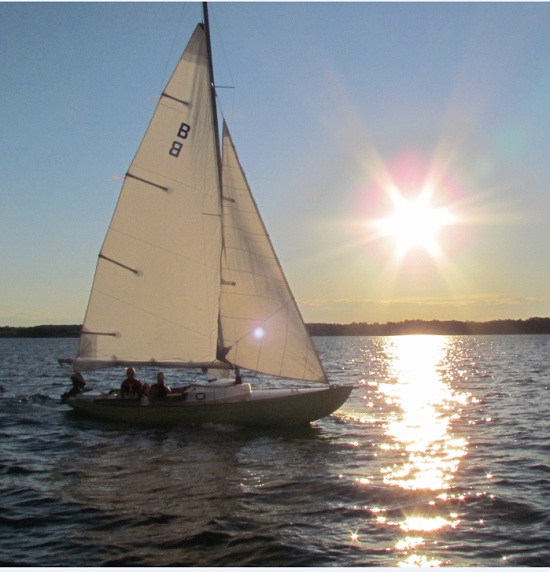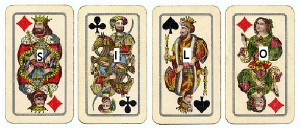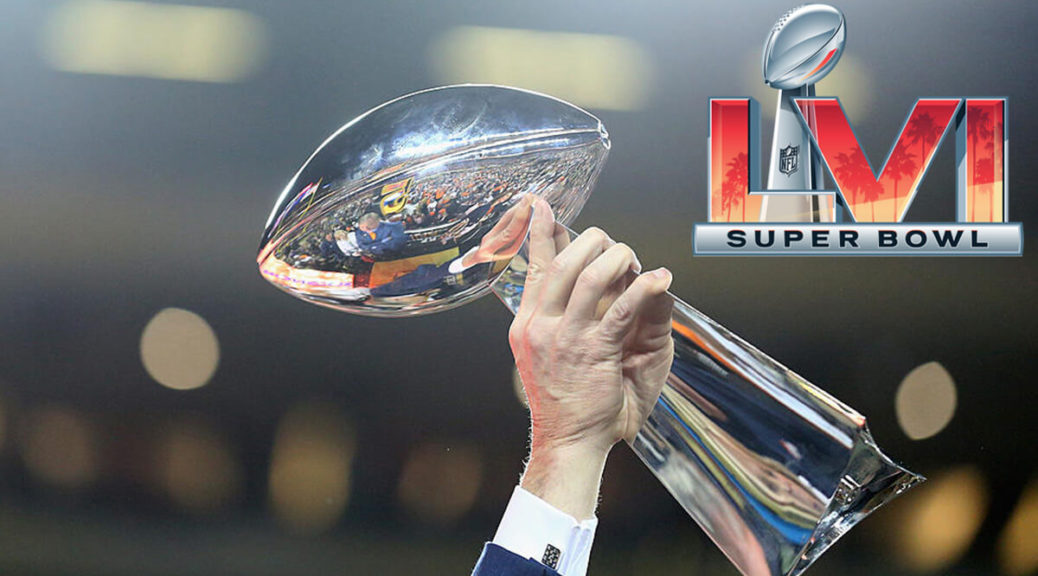
Maybe you’ve seen the ad, or one like it? For example-an Ontario Lottery Gaming commercial that depicts an attractive woman climbing out of bed, enjoying a leisurely cup of coffee before climbing into the cockpit of a sailboat, the implication being that if one wins a multi-million dollar jackpot, one can have the “yachty” lifestyle.
As I write this, I am sitting in the cockpit of my sailboat sipping a cup of coffee while enjoying the morning sun, and I have never won the lottery. In fact, I will be going to work at my average-guy, average-wage job shortly. Then, at the end of the workday, I will be returning to my sailboat, to enjoy the sunset.
For several years my wife, and I, and our dog, have spent the spring, summer and fall aboard our small sailboat. We return to our “dirt-home” only occasionally, to do laundry, mow the lawn so the neighbours don’t complain, collect mail and make sure the place hasn’t burned down.

After all, we need some place to live when the water is too hard and too cold to float a sailboat.
When new acquaintances find out that we are sailors and dock-rats, we often hear, “Oh, I have always wanted to sail!” or “I have always wanted to live on a boat!” What follows is often an enjoyable conversation about how to make it happen, how to “live the dream.”
I will confess, though, when hearing “Oh, I have always wanted to…” that the curmudgeonly little voice in the back of my head wants to retort, “No, you haven’t. If you really did, you would be doing it.”
Because it ain’t that hard to do.
We’re not rich. As I mentioned, my wife and I are pretty average people. Average age, average income, average credit scores, average sized mortgage, kids in college… look up “average” in the dictionary, and you don’t see our picture, because there are millions of folks just like us, and somebody way up the line got the honour.
We made a choice. We chose to buy a good, old boat for a mid-four- figure sum, invest a few hundred bucks a year on maintenance and a few hundred more on a slip to dock it in.
Our boat cost less than the annual membership at many golf clubs, and our slip fee for 6 months is less than a two week cottage rental in Turkey Point.

(Okay, before you start pelting me with hate mail, there’s absolutely nothing wrong with golf or vacationing in Turkey Point. Really. Except the clothes. KIDDING!)
It isn’t all fun and games and Jimmy Buffett tunes though.
Before you dash out and buy an old boat, here’s ten things my wife and I have learned over the past few seasons:
1. The stuff that bothers each of you about each other in 2000 sq ft on land does not magically go away in less than 200 sq ft on water. Learn to communicate, consider and compromise.
2. If you take it out, put it away. Now.
3. Each new item onboard means an old item has to leave.
4. Its okay to not talk.
5. One cooks, one does dishes. Helping doesn’t help.
6. When the dog needs shore patrol, the dog. Needs. Shore. Patrol. Now.
7. Find your own quiet spot, whether it is the v-berth, quarter berth, foredeck or cockpit.
8. You don’t have to get there today. You don’t even have to get there tomorrow.
9. When docking, mooring, anchoring, tacking or damn near anything goes awry, talk it out, and then hug it out.
10. There is a difference between being heard, and yelling.
We live in a slip on a dock with no services. No electricity and no water (aside from that which the boat floats in, smart-alecks,) means we have to refill our onboard water tank from 6 gallon water jugs hauled up the dock a couple of times a week, heat water on our alcohol stove to wash dishes, use solar panels to keep our batteries topped up and we don’t have air conditioning, or a microwave, or a big flat screen TV. A shower is a 10 minute dinghy ride or 15 minute walk away.
And we’re cool with that. We have become better, more creative cooks, we read more, we talk more, and the sunsets here and the characters we share them with more than compensate. We have talked more, laughed more and shared more with our dock-side neighbors than we ever have with our neighbors “on the dirt.” Our house is a house, but this is our home. For the Silo, Brian Jones.






